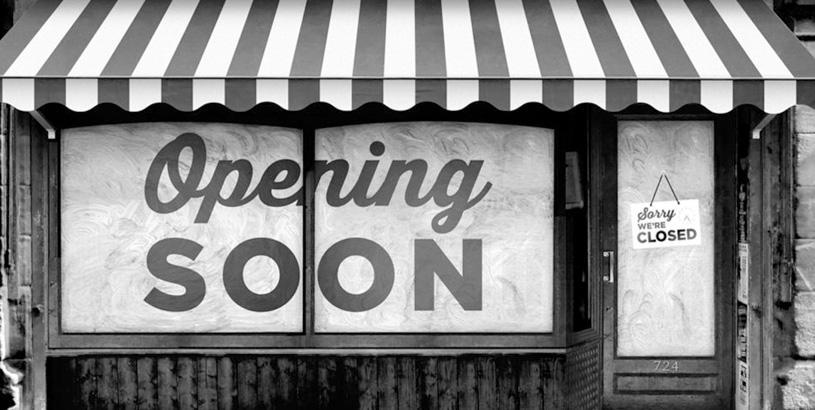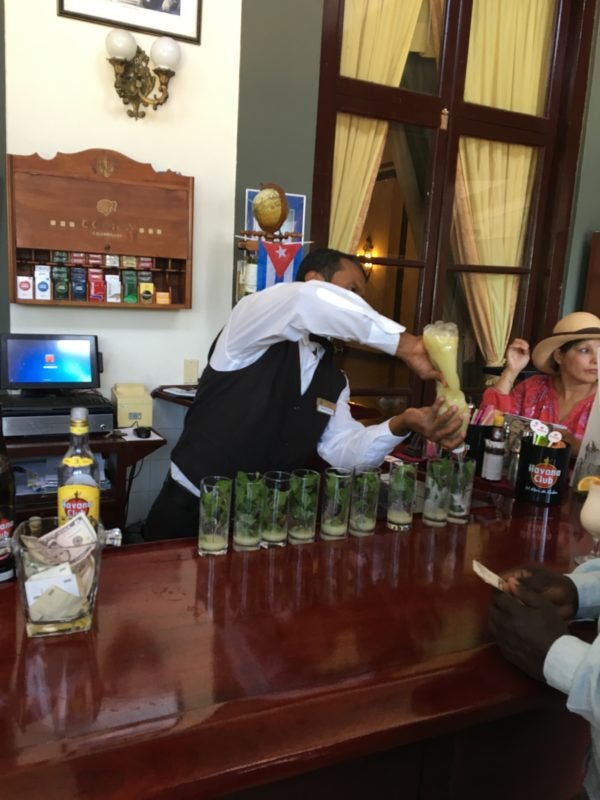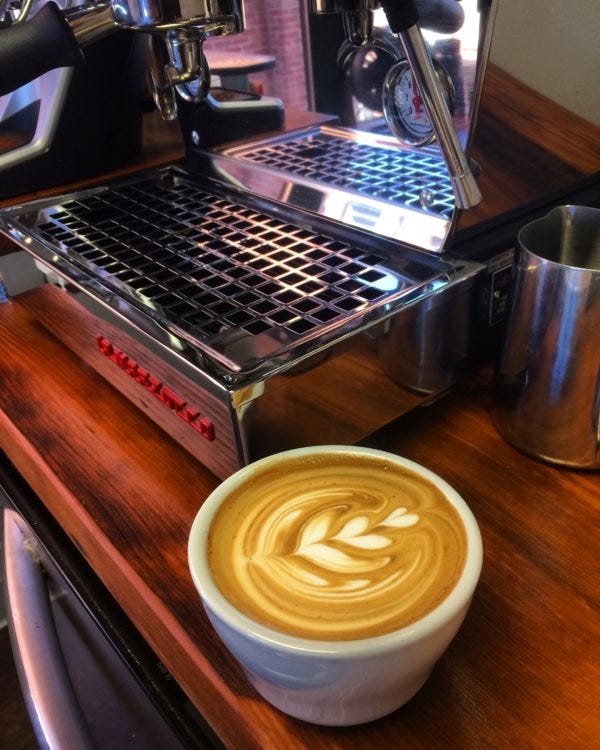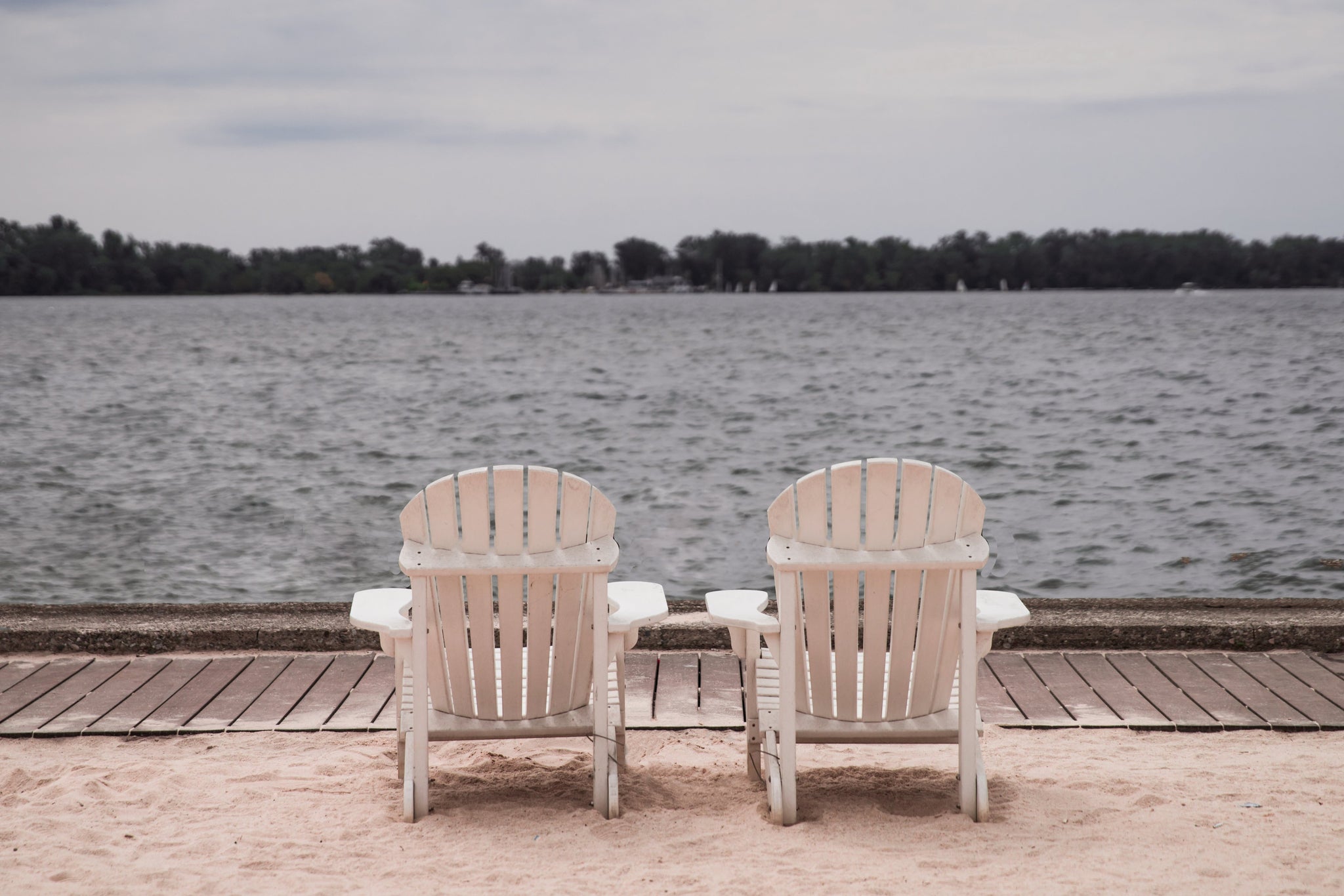Clear Lake Coffee Roasters: Industry Insider Series -Securing New Restaurants as Wholesale Accounts - May 24, 2021

Securing New Restaurants as Wholesale Accounts
The first thing to remember when deciding how to sell coffee beans wholesale to a restaurant that’s not yet open is the owners of start-up restaurants are out of their minds. Logic? You must be joking. Reason? Now we know you’re joking.
But they come by it honestly and deep compassion is warranted. It’s not true that 90% of restaurants fail in their first year, it’s more like 60%. But still, imagine standing on the edge of a cliff with a parachute strapped to your back, ready to base jump, and someone tells you only 40% of those who jump survive. If you decide to jump, you can be forgiven for screaming gibberish on your way down … and showing little interest in coffee.
So you have heard or read or discovered through voodoo that a restaurant is scheduled to open in your town, where you roast coffee that can be delivered so fresh that bags of it threaten to float away like balloons inflated with caffeine infused helium. Sometimes, you’ve been known to claim, you sell coffee based on the aroma alone.
You’re smart, so you try and make a tasting appointment with the chef, but the chef is building a menu and cares more about carrots right now and cannot be bothered to think about coffee, the rote punctuation to a meal and part of the meal that requires none of their hard-earned skills to prepare.
You are shuffled off to the owner, or maybe, the restaurant manager. In either case, you are talking to someone whose bifocals, if you are lucky, hold taste in the top lens and costs in bottom. If they do not view you at the proper distance, you’re all fuzzy and out of focus. There is a very good chance that they can taste the difference between your coffee and the coffee that costs 40% less, but the question is, at what point is the difference worth the price? And your challenge is, the answer is different for every restaurateur you encounter.
How to Sell Coffee Wholesale to Restaurants
As a specialty coffee roaster, of course you want some fine dining restaurant accounts. They don’t buy a lot of coffee, but a high profile restaurant can provide you with good exposure, sometimes great exposure. It’s always nice to count a few well known restaurants among your customers. Whatever your reason, you should have a reason, and some basic tactics for approaching a restaurant account that will never buy more than 15 pounds a week and ask to borrow a brewer.
The Barkeep is the New Chef

Once upon a time, specialty roasters were struggling (even more than they are now) to diversify their customer portfolios and break into markets like grocery and foodservice that were slow to understand not all coffee is created equal. In its founding documents, the Specialty Coffee Association of America identified foodservice as a strategic priority. Everybody knew it just made sense for fine restaurants to serve fine coffee, but specialty coffee made little headway even while coffeehouses were opening everywhere. At the same time, the phenomenon of the “celebrity chef” was growing and it occurred to specialty coffee roasters that they were talking to the wrong person. They needed to sell coffee to chefs.
It worked. Today it is rare to find a fine restaurant serving commercial grade coffee or even anonymous coffee. Many restaurants proudly name their local coffee roaster on their menu. Specialty coffee’s move into foodservice worked so well that for the last decade we’ve seen fast food restaurants making incremental improvements in the quality of their coffee. It worked so well that when a new restaurant is opening, it is very likely that multiple roasters are trying to get to the chef.
But now the chef is not the only avenue for selling on taste. A cocktail renaissance has made the barkeep an influencer in many fine restaurants. If the bartender is known, invite them to a tasting. Even if they don’t have buying power, they do have influence when it comes to beverages. More importantly, building relationships with bartenders is always a good idea even if their manager decides on another coffee. Talented bartenders can change restaurants often.
Be Patient When Price is an Issue
If that new restaurant decides on another coffee roaster with prices, quality, and service similar to yours, well, it happens to all of us. For every aspect of closing a sale that is under our control, there are a dozen things that are not under our control. Move on. But if you lose the account to a roaster with prices significantly lower than yours (over 30%), it’s likely that coffee is on a list of “things we can fix later,” like the wrong shade of paint in the restrooms. Don’t be pushy, of course, but drop coffee off when there is a reason, like holidays or the anniversary of their opening, stay in touch with the aforementioned bartender, and eat at the restaurant occasionally.
Everyone involved in opening a new restaurant is in an anxiety-filled free fall for months, waiting to see if they are among the 40% that fly or the 60% that splat. There will be panicked changes to the menu and shake-ups in the kitchen, but eventually, if/when things stabilize, the fine tuning will begin. The bathrooms will be repainted, the wait staff will stop wearing ties and start wearing jeans, and one day somebody will say, “Hey, don’t you think our coffee should be as good as our desserts?”
Make Things as Simple as Possible But No Simpler

If you’ve scheduled a tasting with a restaurant that hasn’t yet opened, leave the flavor wheel, the cupping supplies, and that single origin that jumps off the table at the roastery. If you can get a new restaurateur to come to your roastery (it does happen), by all means introduce them to cupping, but even then, easy does it. When selling to a coffeehouse, a business for whom more than 50% of sales are coffee beverages, they need a full menu of coffees and familiarity with the process by which your company controls quality. A fine dining restaurant, even if they have a brunch on Sundays, needs regular and decaf. Done. Unless they tell you otherwise up front, coffee is an accompanist, not a soloist. If the restaurant has an espresso machine, then they’ll also need a regular and a decaf es
Whilst you're here are 6 reasons for making Clear Lake Coffee Roasters - CLCR - your go-to coffee roaster:
☕️ We are a local family-run business located in the heart of Clear Lake, Iowa.
☕️ We go to great lengths to find only the finest and ethically sourced coffee around, from the top 2% of coffee beans in the world.
☕️ We only source 100% certified Arabica coffee beans, carefully hand-selecting each coffee based on specific quality and taste attributes.
☕️ Our roasting process has been refined over the years and each roast profile is individually designed to complement the nuances of the coffee we source, from Cup of Excellence (COE) award-winning producers.
☕️ By roasting in smaller batches, we can ensure our coffee is ALWAYS fresh, in fact, we roast your coffee only after you place an order - the same day your order ships out.
☕️ At CLCR, we are dedicated to a single mission: the unyielding pursuit of coffee perfection in every cup.
We would give you more reasons, but rather than reading it's better if you visit our website, purchase a bag or two, and experience a unique caffeinated or half-caff journey for yourself 😊!
Explore goodness. Click. Buy. Smile.

Clear Lake City Park Beach - Named one of USA Today's top 50 Beaches in the United States.
presso blend. If your espresso blend also works as the house drip coffee, you are both rocking and rolling.
Again, unless you’ve been told that the restaurant wants coffee to play a feature role alongside their dessert menu and/or brunch, or they have their heart set on the sound of a single origin, bring just two blends to a tasting and one decaf. One blend can emphasize body, and the other brightness. If their dessert menu tends toward heavy and bready or light and citrusy, they can choose coffee to compliment or contrast either.
Even if a new restaurant has a relatively ambitious coffee program planned, usually driven by someone with coffee experience, they are likely to dial it back once they’ve been open for a while. You’re not doing their business or yours any favors by agreeing they should offer three single origins in addition to a house blend. Don’t hesitate to suggest they start simple and add coffees later if it makes sense.
Even though a new generation of restaurateurs may not be tied to the expectation of coffee supplier as equipment supplier, restaurants can still be difficult and demanding relative to the volume of coffee they use. Restaurants that have yet to open are even more challenging, but also exciting. Like everyone along any supply chain, they benefit greatly from thoughtful suppliers focused on long-term relationships. At no point is this more important than during start-up-that's really how to sell coffee beans wholesale to restaurants. When everyone, including the owners, are wondering if they’ll still be open in a year, it can be helpful to have a potential supplier focused on simple, quality-driven solutions.


Leave a comment
Please note, comments must be approved before they are published